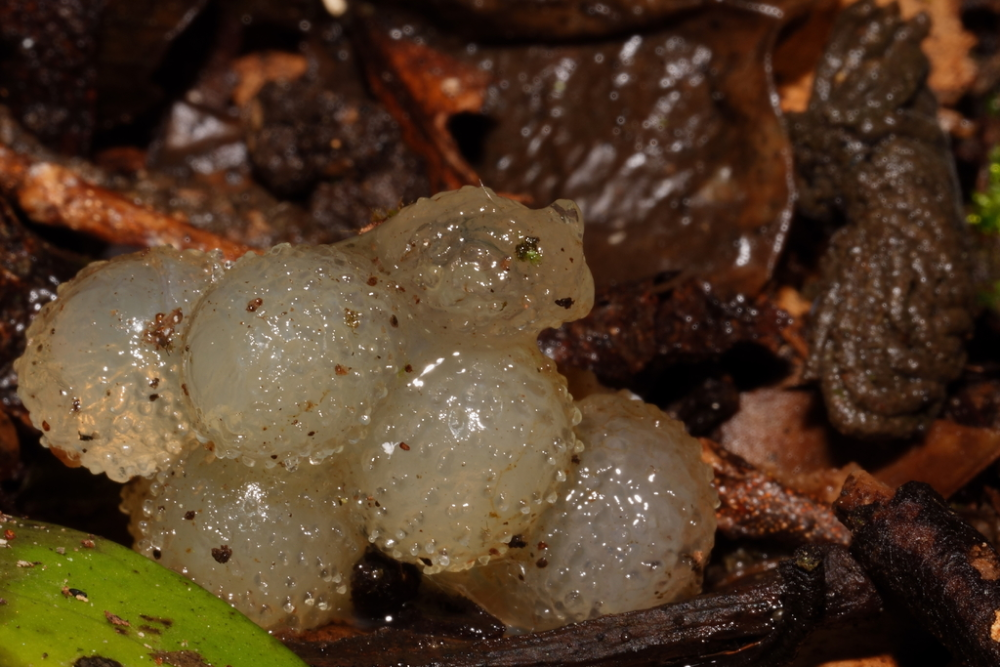If you were to go strolling at night in the right part of New Zealand, you just might be blessed by a visit from one of nature’s most delectable-looking gastropods: the pickle slug. Also known as putoko ropiropi, the gherkin slug, leaf vein slug, or Athoracophorus papillatus, these slugs are famous for the little spikes on their backs that give them that briny je ne sais quoi, and we are so here for it.
The pickle slug is an air-breathing terrestrial gastropod from the family Athoracophoridae. These gastropods are unique to the South-West Pacific, but the pickle slug is best known from New Zealand.
Like other slugs, it lays eggs after reproducing (not sure if you’ve ever seen slug sex, but it gets very weird). Though “the pickle slug” is really more of a nickname for these gastropods than an official title, it seems fitting given it looks as if they hatch from inside little pickled onions.

The entire life cycle of a pickle slug would look at home on a cheese board.
It’s more formally known as the leaf-veined slug for the patterns on its back that camouflage it well among the leaf litter. Those pickle-like protrusions on its back are actually papillae, a feature of several slugs that in some species can even inflate and enlarge to alter their appearance.
The pickle slug was recognized in the New Zealand Bug Of The Year competition 2025, which was quick to point out that while there’s still a lot we don’t know about these curious critters, what we do know about them tells us that they may be a much more welcome garden visitor than other slug varieties.
“These guys are a member of the leaf vein slugs (Athoracophoridae). Like all leaf vein slugs, gherkin slugs are masters of disguise,” reads the New Zealand Bug Of The Year website. “The te reo name for this family, putoko ropiropi, refers to the distinctive leafy stripes found on many species of these slugs.”
“Our native leaf vein slugs are poorly studied, with likely several species yet to be described. However, they are thought to feed on algae and fungi – not your veges like those pesky introduced garden slugs!”
The pickle slug was unfortunately unsuccessful in this year’s competition, losing out to the velvet worm, praying mantis, and giant springtail, who came 1st, 2nd, and 3rd, respectively. No hard feelings, pickle slug. After all, it is pretty hard to contend with one of nature’s ultimate Underdogs: the “SuperZero” velvet worm that can fire silly string that turns stiffer than nylon at its enemies.
Wildlife photographer Nick Volpe was lucky enough to encounter a pickle slug while out walking in Wellington, New Zealand. We know it’s tough to watch people living your dreams, but the subsequent footage is the kind of enthusiasm you just love to see for bugs that often get less of the limelight compared to nature’s bigger characters.
A slug that looks like a gherkin? Now that’s a big dill.
Source Link: Meet The Pickle Slug, A Knobbly Wonder That Lays Little Pickled Onions For Eggs